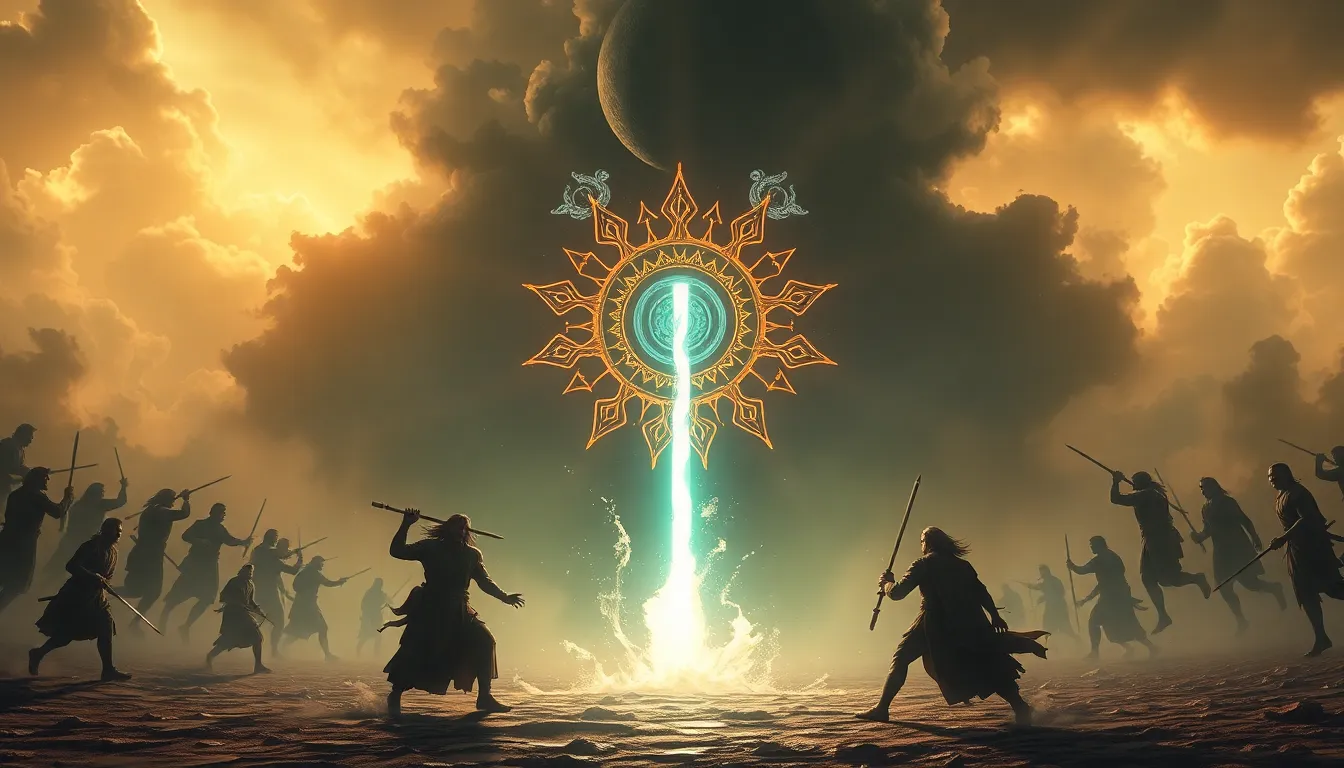The Myth of the All-Knowing Sage: Morality in Wisdom Tales
I. Introduction
Wisdom tales, often rich in cultural heritage, are stories that convey moral lessons through the experiences of their characters. These narratives, found in various forms across different cultures, serve not only to entertain but also to educate. One of the most enduring archetypes within these tales is the all-knowing sage, a figure often depicted as possessing unparalleled knowledge and wisdom. This article explores the significance of morality in wisdom tales, particularly focusing on the complexities surrounding the all-knowing sage archetype.
II. Historical Context of Wisdom Tales
The origins of wisdom tales can be traced back to ancient civilizations, where storytelling was a crucial method for imparting knowledge and ethical teachings. From the fables of Aesop in ancient Greece to the parables of the Bible and the tales of the East, wisdom tales have evolved significantly over time.
Across different traditions, the figure of the sage has undergone transformation. In some cultures, sages are revered as spiritual leaders, while in others, they may be seen as eccentric characters with deep insights. This evolution reflects the changing values and beliefs of societies throughout history.
Oral storytelling has played a vital role in moral education, allowing communities to pass down wisdom and cultural values through generations. These stories often provide a framework for understanding ethical dilemmas and the consequences of human actions.
III. Characteristics of the All-Knowing Sage
The all-knowing sage is typically characterized by a set of traits that include:
- Profound knowledge and insight
- Calm demeanor and patience
- Ability to solve complex problems
- Strong moral compass and ethical standards
When compared to other archetypes, such as the fool or the hero, the sage often represents a more nuanced understanding of knowledge and morality. While the fool may provide comic relief and the hero embodies courage, the sage serves as a mediator who navigates the complexities of life with wisdom.
Cultural variations also exist in the portrayal of wisdom figures. For instance, in Eastern traditions, sages like Confucius are depicted as wise teachers, while in Western folklore, figures like Merlin embody both wisdom and magical prowess.
IV. Common Themes in Wisdom Tales
Wisdom tales often explore several recurring themes, including:
- The quest for knowledge and understanding: Many tales center around characters seeking wisdom, emphasizing the importance of lifelong learning.
- The role of humility and self-awareness: Sages often teach that true wisdom comes with an understanding of one’s limitations.
- The relationship between wisdom and morality: These tales frequently highlight how wisdom should guide moral decisions.
V. Morality in Wisdom Tales: Key Lessons
Wisdom tales present numerous ethical dilemmas faced by sages, illustrating the complexities of moral decision-making. Some key lessons include:
- Ethical dilemmas faced by sages: Sages often encounter situations where they must choose between conflicting values, teaching that morality is not always black and white.
- Consequences of wisdom in decision-making: The tales frequently show that wise decisions can lead to positive outcomes, while ignorance or arrogance can result in failure.
- The interplay between knowledge and moral responsibility: Sages are often portrayed as responsible for using their knowledge for the greater good, emphasizing that wisdom carries weighty ethical implications.
VI. The Disillusionment with the All-Knowing Sage
While the all-knowing sage is a powerful archetype, many wisdom tales challenge this ideal. Case studies reveal instances where sages exhibit fallibility, reminding audiences that wisdom does not equate to infallibility. Examples include:
- Stories where sages make poor judgments, leading to unintended consequences.
- Narratives that reveal the limitations of knowledge and the importance of experiential learning.
The role of the audience is also crucial in interpreting wisdom. Listeners or readers bring their perspectives, which can influence the understanding of a sage’s actions and decisions.
VII. Contemporary Relevance of Wisdom Tales
In today’s fast-paced world, wisdom tales retain their significance. They can be applied in modern contexts, such as:
- Leadership and governance: Lessons from wisdom tales can inform ethical leadership and decision-making in various organizations.
- Personal growth: Individuals can find guidance in these stories, using them to navigate their own moral challenges.
- Societal ethics: Wisdom tales contribute to ongoing moral discourse in society, prompting critical dialogue on contemporary issues.
VIII. Critiques of the All-Knowing Sage Concept
Critiques of the all-knowing sage often emerge from feminist and post-colonial perspectives. These critiques reveal several important points:
- The danger of idolizing authority figures: Blindly following a sage can lead to harmful consequences.
- Alternative narratives that empower marginalized voices: Many wisdom tales have traditionally centered on male figures, neglecting the wisdom available in diverse communities.
IX. Reimagining the Sage: New Perspectives
Contemporary literature increasingly reflects diverse representations of wisdom. New perspectives include:
- Inclusion of marginalized voices in wisdom tales, allowing for a richer tapestry of narratives.
- Diverse representations of wisdom that challenge traditional notions and expand the understanding of who can be considered wise.
- Exploration of the future of wisdom stories in a globalized world, where cross-cultural exchanges enrich storytelling practices.
X. Conclusion
In summary, the exploration of morality in wisdom tales reveals key insights about the all-knowing sage archetype. While these figures often embody profound knowledge and moral authority, it is essential to question traditional narratives that elevate them to infallible status. By reflecting on the complexities of wisdom and the importance of diverse voices, we can foster a more nuanced understanding of morality in our stories and, by extension, our lives.
This call to action encourages us to engage critically with the tales we share, recognizing the power of storytelling in shaping personal and societal ethics.




